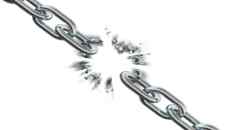| |
 What can I use the Cord Cutting Technique to heal from?
What can I use the Cord Cutting Technique to heal from?
Discovery statement: EMOTIONS ARE THE ULTIMATE POWER IN YOUR LIFE, IN MY LIFE, IN EVERYONE'S LIFE. Good or bad, positive or negative. Emotions cause us to fight, start wars, to form relationships, to get married, to have children, to get divorced, to buy a particular car or house. They can make us ill, or make us healthy. Our whole lives have been a history of emotions. Whether we like it or not, emotions have forged who we are now from our past and the interactions we've had with others.
We all suffer from emotional scars of one sort or the other. Some are clearly visible, some you cannot see and hide deep in our hearts and minds. Emotions shape our boundaries, influence our beliefs, our thoughts and our actions. There are many types of scars, emotional, physical, internal, or mental and all equally as stressful.
Here is a non exhaustive list of emotions and physical issues that can be the product of a negative cord of attachment. You may decide that some of this applies to you, and if it does, finding 3 cords to detach from will be relatively simple.
For others, you may need to adapt these ideas or merge them, but they are here just to give you a feel of what to do and the kinds of things you might like to address. We are all individuals of course, and what is relevant to one may not be relevant to your situation.
- Abandonment - A deep sense of loss, of not being wanted, of being let down. A form of abuse.
- Acceptance - You may feel that others don't accept you for who you are and this may bother you. Detaching from this can mean that you no longer find it bothersome.
- Note:- Sometimes cutting cords is not to fix a situation, but to change your perspective of it.
- Affection - Issues about giving or receiving.
- Agitation - Perhaps about other peoples inability to fall in line with our own priorities or beliefs or attitudes.
- Angry - If you can detach from anger, yours or someone else's, you're well on the road to recovery.
- Animosity - Being the subject of active hostility or open enmity can be very stressful.
- Anxiety - Stress or uncertainty about an event or situation, or a reaction that causes worry.
- Ashamed - Associated with guilt or embarrassment about some past event or encounter
- Note:- This is almost always best de-corded from. Whatever you may have done in the past, IS in the past, and should stay in the past. Nothing you do now can change the past. Accept that learning from the past means you have changed. The meditation teaches us to forgive ourselves the past, and to grow from our experiences.
- Bitterness - Bitterness consumes far too much energy, mostly our own. It may impact on the immune system as it sends the wrong messages throughout the body. The opposite of forgiveness.
- Bliss - Obviously, keep this one
..
- Cautious - Try to leave behind unwarranted distrust, but of course, without leaving yourself open to abuse.
- Child Abuse - The ultimate betrayal of trust.
- Denial - Learn to accept things the way they are, forgiving yourself or forgiving others, when faced with a situation you don't want to accept or wish never happened.
- Note:- You can't change the past, but you can take away its sting by accepting things and dealing with them openly.
- Depression - Another big emotion. Find out what is causing your depression and clear it out by de-cording from the cause.
- Note:- Depression can have many causes, and even though the cause may be lost in time, we can usually pinpoint when it started, even though much may have happened from other areas of life to support the depression and disguise the original cause. In this instance, de-cording may be like peeling an onion, where other issues are revealed as you proceed, but it is worth pursuing to a see a conclusion.
- Despair - A loss of all hope. Depending on the circumstances, if all hope is lost it may be possible to turn away and start again.
- Disgust - Maybe because of what you have seen, or been forced to endure, or witnessed.
- Disheartened - We are all let down by other people at times, the severity of which can destroy our spirit.
- Doubt - To doubt someone else is sometimes the result of being let down badly ourselves, perhaps by a partner, friend or family member, and this constant uncertainty and scepticism we can find is draining and painful.
- Embarrassment - Often associated with shame over past events or misdemeanours. It can also manifest during public speaking or when we need to take on important responsibilities, especially if we are not used to working this way. These types of cords can also involve financial difficulties.
- Exhaustion - Okay, this is the one! Feeling exhausted or chronically fatigued can be the result of an attachment to someone else through a negative cord. This isn't the only thing that makes you exhausted, but if it happens around visits to certain places, interactions with certain individuals, anniversaries, certain memorable moments, then you could perhaps assume this is where the problem lies and it is worth looking to see exactly what the triggers are.
- Family abuse and bullying - Usually a result of power struggles in a family. Almost always with deep roots in the past.
- Fear - All negative emotions have the fear of something as the key. Close analysis of what makes us fearful will reveal lots of energetic cord connections that can be broken. Unsubstantiated fear in a relationship causes you to sabotage that relationship over and over.
I don't mean fear due to physical violence, because my advice for that is, cut the cord and get the hell out as fast as possible, or, get out and then cut the cord. I mean, when you only THINK there are circumstances in the relationship that can hurt you, including fears that have no basis in reality.
- Frustration - We feel frustrated when other people don't do what we want them to, or they don't fall into line with our time frame. Big or small frustrations can become a problem because they lead to resentment.
- Furious - Usually the result of demonstrating an unforgiving nature. Feeling angry with others for extended periods causes chemical changes in the body which have been shown to be important factors in heart disease and many other circulatory disorders.
- Gloom - Feeling doomy and gloomy can be the product of depression or a succession of sour events and experiences that have compounded over time.
- Grief - Of course, losing someone close to us is going to cause grief, pain and sorrow, probably for some considerable time, that's only natural. Some people grieve for years because they are unable to switch the grieving off. They don't realize that switching the grieving off is a skill you can accomplish through cord cutting. I'm fairly certain loved ones would rather we moved on in life rather than remaining stuck in a cycle of longing and loneliness for extended periods. After all, they have moved on, perhaps after a suitable period, we could decide to do the same.
- Guilt - Guilt has got to be one of the most useless of emotions, but comes up persistently in therapy. If you have done something you regret, GOOD! The fact that you regret it means you have learned by your mistake and probably will never do it again. Release the guilt and rejoice in the growth, freedom and change.
- Hate - If you hate, you are probably angry as well. Buddha said: Holding onto anger is like grasping a hot coal with the intent of throwing it at someone else; you are the one getting burned. De-cord from hate and learn forgiveness. The person you hate doesn't care. So the only person getting hurt, is you!
- Heartbreak - To have your heart broken is perhaps the most painful of human emotions because it interferes and places doubt on the strongest connections we have with other human beings; those connections being LOVE.
- Hostility - Closely associated with several other emotions and behaviours from this list. It is beneficial to withdraw from hostility, and if you find you have unexplained general hostility, try to analyze where it is coming from or what caused it and is sustaining it. Hostility is often a learned behaviour.
- Humiliation - Can be the cause of much pain and anger and generally makes us feel a little stupid. Can come from a one off event or a single trigger, or from sustained bullying or an inter-relationship power struggle.
- Hurt - Often associated with real or imagined betrayal in relationships or humiliating behaviour. Can be particularly wearing when you are perhaps living with a partner who is deeply jealous and uses hurtful comments or actions to keep you in a state of hurt.
- Insecurity - Insecurity keeps us in the air. We can never ground properly and find our roots/foundation, or feel at home anywhere. Some people use insecurity as a tool to keep us dependant on them, as when we are on the wrong side of an unequal power struggle.
- Intimidation - Caused when someone tries to dominate us, to discourage us from doing our best or to silence us.
- Invidiousness - Tending to rouse ill will or animosity toward others, to be offensive. If you find yourself needing to establish your authority this way, try to analyze where this need came from.
- Jealousy - Just about the most destructive emotion in any relationship, whether you are being watched or you're the one doing the watching. Look at the emotions involved with jealousy; fear, apprehension, resentment, bitterness, envy, possessiveness, vigilance, disloyalty, infidelity, doubt, guilt and hurt. No wonder relationships that have jealousy as a feature, don't last.
- Living in a violent marital relationship - Only you will ever understand why you stay, but specific de-cording may be a good way to give you strength, or help you cope with the cruelty of your situation. If you are the abuser, look to see and understand why you need to gain your power through violence, and if it was past experience, work toward leaving that behind and find new ways to feel significant.
- Loneliness - Few emotions encourage hopelessness in the psyche like loneliness. We can be lonely for lots of reasons. Perhaps we are shy, or suffering from things like social phobia or claustrophobia. It might be we are just plain horrible to other people and find we are regularly shunned. The underlying cause is usually fear related and a family, childhood or experience learned response.
- Mood Swings - Almost always a product of emotional upheaval, depression, low self esteem or not getting needs met.
- Pessimism - The tendency to always look on the least hopeful side of a situation. There's always a reason for this. It's generally a learned behaviour and a legacy of our childhood.
- Rape - The deep scars of rape leave cords of attachment that pain and stab every day, and must be cut for there to be a healing. So many are forced to bury the memory really deeply because of the way it was done, or by whom. These memories can become splintered into guilt, shame, why me, what did I do wrong, it must have been something I did, etc. Because victims find it difficult to rationalize, they tend to internalize.
- Rejection - Constantly being refused affection or recognition is demoralizing and encourages feelings of uselessness. Forgiveness is the main alchemy behind healing.
- Remorse - Closely allied to guilt and equally as unproductive emotionally. Rational analysis and de-cording from past misdeeds is a force for healing.
- Sadness - There are times when we are not able to let go of someone or something even when that person or event is no longer a major influence in our lives. You can be feeding energy to the situation even when you don't want to be connected or corded anymore. Sadness can come from grieving a loss, remembering childhood trauma, betrayal, divorce, lots of things, large or small. De-cording from issues that keep us trapped in sadness can completely turn our lives around.
- Sexual abuse - The loss of trust in those who are meant to take care of you, but who instead abuse you, is the ultimate betrayal. More counselling hours are spent helping the victims of sexual abuse than just about any other issue.
- Trust - Most of us don't listen to our intuition because we don't like what it says. De-cording is a good way to stand back and look again; gaining a greater understanding. Accept your body wisdom for what it stands for; self preservation, cleanliness and clarity. Many of us have justifiable trust issues with partners, family or employers. Whether recent or ancient history, practicing forgiveness through de-cording is the perfect way forward. This is forgiveness of self, of course, not any diabolical acts that may be responsible for the mistrust.
- Uncertainty - Uncertainty leaves us wanting and short on our human givens. All you need to do is make one tiny difference in the way you interrupt life's meanings and your whole world changes.
- Verbal abuse - Can screw up a child (or adult) and destroy their spirit in seconds, possibly causing serious emotional trauma.
- Witnessing a violent scene - This can be a trigger for PTSD and can cause an increase in hyper-vigilant behavior.
Some times in your life when you may need to de-cord, on a recognized graded scale:
- The death of a spouse.
- Following divorce.
- Following marital separation - feelings of loss or loneliness.
- During or following a jail term - either your own or someone close.
- The death of a close relative.
- Personal injury or illness - bad memories or change of life circumstances.
- At or after marriage.
- Being fired from your job - to deal with any self-esteem issues.
- After marital reconciliation - there may be much to forgive.
- Retirement.
- Deterioration or change in a relative's health.
- Pregnancy.
- Sexual problems - especially following a dysfunctional relationship.
- A new family member.
- Following business readjustment.
- After a large change in finances.
- The death of a close friend.
- Changing to a new type of job.
- Change in the frequency and number of marital arguments.
- Taking out a large loan or new mortgage.
- Mortgage foreclosure.
- When a child leaves home - the pain of separation or worrying if they'll cope.
- Having difficulty with the in-laws.
- When your partner starts, stops, or changes employment.
- When you start, stop or change schools, college or university.
- After a major change in living conditions.
- When you change your personal habits - like trying to stop smoking, or recovering from drugs or alcohol abuse.
All of us carry around scars from our early experiences. For many, these scars are painful and difficult to live with. The past keeps catching up, and trying to change the past, or just coping with it, doesn't allow for efficient, or effective, healing. The scars we carry around hold us to the past. And, all the while we remain emotionally attached to the past, we have trouble fully living in the present. Cutting the cords to our past is an effective healing modality, that will enrich your life and that of the people important to you. You owe it to yourself to live the life you've always dreamed of. Go and do it NOW!
|
| |

